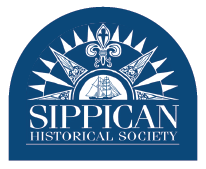
School started for many students this past week, and young scholars are gearing up for another year of “readin’, writin’, and ‘rithmetic,” as well as languages, art projects, science experiments, music lessons, sports, and world and local history. Happily, current pedagogy emphasizes the use of primary sources for teaching and research, even for elementary students, which makes the heart of an archivist sing!
Primary sources in all formats – documents, personal letters, photographs, objects, and books – from the 18th century through today are preserved and available both online and here at the SHS, and we are eager to share these with interested students of all ages. Much of what a scholar needs can be found in our online catalog, but many more materials exist here in the archives, and are just waiting to be discovered and used. Unlike a library where students can browse the stacks and check out materials to take home, however, the archives* at SHS provides materials for research here on site. One of the benefits of working on site is that staff members are present to help students and other researchers discover unique materials to enhance their schoolwork, to suggest new research directions, or simply to decipher letters written in cursive handwriting, such as the one above.
Letters are particularly fascinating, as they provide a glimpse not only into the personal lives of the writer and the recipient, but can show us what life was like in an era different from our own. This letter was written by Mrs. Somers to her son James, a soldier, and is dated March 2, 1865. James’ mother shares how much his letters home mean to the family:
. . . today [I] was agreeabIy surprised to have another long letter from you, and dear James, I wish you could look in on us unaware, and see us read your letters. If Father happens to be to the store when one arrives, he will not let any one of the boys bring it up, but will bring it himself and sit down and begin to read and we all gather around him . . . I am glad to hear you like letters and hope you continue to do so by [sic] to do right and you will never be sorry. Serve your country faithfully, but do not in the meantime [illegible] your own soul. Write often.
What a window into the heart of a proud, loving parent this letter provides, and what an interesting source it might be in a student’s research on the Civil War era! This letter, others like it, and journals, photographs, and many other personal materials in the SHS archives, provide colorful details to help students to understand more fully our local and national history.
*The word “archives” is a collective noun!
